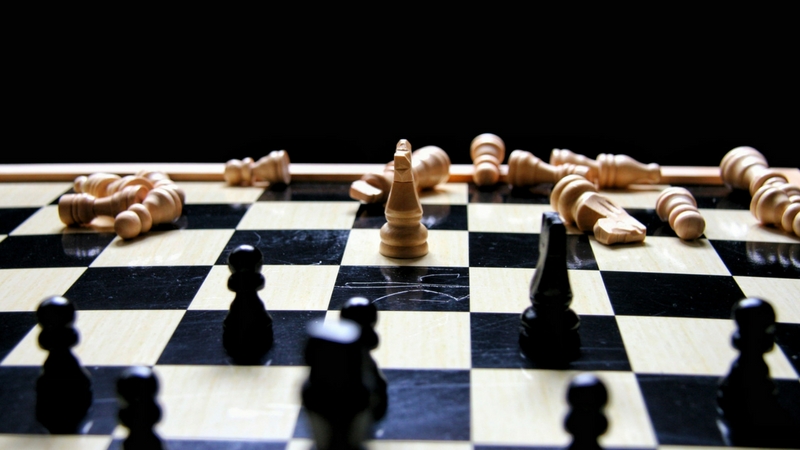Game Theory
Episode #10 of the course Introduction to macroeconomics by Doha Soliman, CFA
Welcome to the last day of the course! We couldn’t finish off our course without discussing Game Theory, a widely used concept in economics.
Game Theory in a Nutshell
Let me ask you: What do you know about game theory?
Most people answer me with quotes from the movie A Beautiful Mind, and the answer is actually right! John Nash, the scientist whom the movie was based on, is the pioneer of game theory. While Nash was a mathematician, he contributed largely to economics as well.
The concept of game theory dates back to early civilization, based on Sun Tzu’s writings, and it is all about strategy in the face of the unknown. When you are making business decisions, you’re doing so with the assumption of what the other players will do, expecting them to act rationally. If those assumptions are wrong, your entire strategy can be flawed. Game theory develops strategies for any part of one’s life in which the decisions of one player depend on the actions of the other players. It essentially uses a scientific approach to quantify and model human behavior.
Many advocates of game theory believe that it is crucial to understanding economic decision-making, even if humans are not always rational. At the same time, many believe that scientific models cannot truly grasp their complexities of the human mind and hence, behavior. While we cannot put this debate to rest, we can certainly utilize game theory to further understand the world around us.
The Prisoner’s Dilemma
Let’s look at a very common example of game theory: the prisoner’s dilemma, which shows how two perfectly rational individuals may not cooperate even when it is in their best interests to do so. The prisoner’s dilemma is a fictional paradox in which two friends are accused of a crime and are interrogated separately. They are both given the same options and must make a choice without consulting the other friend. Their fate, however, depends on the choice they make in combination with their friend’s decision.
Option 1: If A and B each betray the other, each of them serves two years in prison.
Option 2: If A betrays B but B remains silent, A will be set free and B will serve three years in prison (and vice versa).
Option 3: If A and B both remain silent, both of them will only serve one year in prison (on the lesser charge).
Now, ask yourself which answer you’d choose and then ask your friends. It’s a fun paradox to consider. Contrary to what seems most rational, most individuals do not pick Option 3, but rather operate in what is in their best interest and typically accuse the other friend. This is because the individuals assume that their counterpart will do what is considered the rational answer and will remain silent. This concept illustrates that parties pursuing their own self-interest may not always reach a market equilibrium.
Game Theory and Macroeconomics
Strategy is the framework behind game theory. It is concerned not with developing mental techniques to operate in one’s self-interest, but by considering the moves their opponent will make.
Game theory is often applied to macroeconomic theory, since it relates to the greater good, market equilibrium, and a balance between key parties. In particular, such a strategy mostly manifests itself when evaluating corporations in an industry. Large corporations often engage in strategic play in developing their market share and in competing with other players.
This brings us to the end of our course. Congratulations on a job well done! You can reach me any time on my Twitter or LinkedIn. Best of luck, friends, and thank you for joining me on this journey.
Recommended book
Doughnut Economics: Seven Ways to Think Like a 21st Century Economist by Kate Raworth
Share with friends

